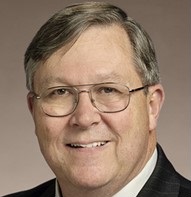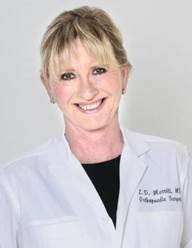Protecting the Public’s Health-Except in Tennessee
 Wednesday, December 15, 2021 at 8:00AM
Wednesday, December 15, 2021 at 8:00AM State regulatory boards that regulate professionals such as doctors, nurses, psychologists, etc. are often appointed by politicians and headed by lawyers. Under this category has been most Medical Boards and their parent organization the Federation of State Medical Boards. Although they claim to be protecting the public, they seem more concerned with identifying “disruptive” physicians and blacklisting them through the National Practitioner Data Bank (1). However, in July the Federation issued a warning to physicians against propagating COVID-19 vaccine misinformation and disinformation citing a "dramatic increase" by physicians (2). The statement gave some hope that the Federation was striving to maintain some degree of professional standards by saying that spreading disinformation to the public was dangerous because physicians enjoy a high degree of public credibility.
The Tennessee Board of Medical Examiners followed the Federation’s lead by issuing a verbatim restatement warning that physicians who spread false information about COVID-19 vaccinations risk suspension or revocation of their medical license. Under repeated threats by Rep. John Ragan, R-Oak Ridge, co-chair of the State of Tennessee’s Joint Government Operations Committee, the warning was removed on December 7.

Figure 1. Representative John Ragan.
Rep. Ragan insisted board members do not have the authority to create a new disciplinary offense without the approval of the lawmakers on his committee. He threatened to dissolve the board and appoint all new members if it did not immediately take it down and the Tennessee board succumbed to Rep. Ragan.
Across the country, state medical licensing boards are struggling to balance the politics and public interest with how to respond to scientifically baseless public statements about COVID-19 by some physicians. The Federation says the statements are increasing public confusion, political conflict, preventable illnesses and deaths (3). There have been only a small number of disciplinary actions by medical boards against physicians for spreading false COVID-19 information. Critics say the boards have been weak in responding to these dangerous violations of medical standards. For example, Dr. Lee Merritt, an orthopedic surgeon, from my home state of Nebraska has appeared on talk shows and in lecture halls to spread false information about COVID-19 (4).

Figure 2. Dr. Lee Merritt
Among her claims: that the SARS-CoV2 virus is a genetically engineered bioweapon (the U.S. intelligence community says it is not) and that vaccination dramatically increases the risk of death from COVID (data show the opposite). The entire pandemic, she says in public lectures, is a vast global conspiracy to exert social control. Yet, in October, she was able to renew her medical license in the state of Nebraska. Documents obtained through a public records request by NPR showed it took just a few clicks: 12 yes-or-no questions answered online allowed her to extend her license for another year.
Physician ethics have also been under assault in medical schools. Several medical schools recently founded by healthcare organizations seem overly concerned that their graduates might object to some COVID-19 statements on a scientific basis (5). Through these new medical schools, business interests hope to indoctrinate medical graduates on how to serve the public any way a healthcare administrator tells them. Even a healthcare organization as lofty as the American College of Physicians now has their ethics statement written by a lawyer (6).
These, as well as other examples, demonstrate that as we lose control of the ethics of our profession, we lose control of our profession. Assuming the physicians reading this editorial are against the dissemination of false information, what can we do? One example, came from Houston, Texas where Dr. Mary Bowden, who posted "harmful" and "dangerous misinformation" about Covid-19 and its treatments on social media, had her medical staff privileges suspended. She subsequently resigned from Houston Methodist (7).
We as physicians should work through our medical staffs over these issues. Hopefully, we will not try to repress legitimate concerns from physicians expressing objections to hospital or medical staff policies through appropriate channels. However, if the medical staff chooses to proceed over those objections, each physician can use their conscience to refuse to work with physicians disseminating misinformation. We are one medical family and what hurts one of us, hurts us all.
Richard A. Robbins, MD
Editor, SWJPCC
References
- Robbins RA. The disruptive administrator: tread with care. Southwest J Pulm Crit Care. 2016:13(2):71-9. doi: http://dx.doi.org/10.13175/swjpcc049-16.
- Federation of State Medical Boards. FSMB: Spreading Covid-19 Vaccine Misinformation May Put Medical License at Risk. Available at: https://www.fsmb.org/advocacy/news-releases/fsmb-spreading-covid-19-vaccine-misinformation-may-put-medical-license-at-risk/ (accessed 12/13/21).
- Sawyer N, E Bloomgarden E, Cooper M, Nichols T, Hickie C. Opinion: State medical boards should punish doctors who spread false information about covid and vaccines. The Washington Post. September 21, 2021. Available at: https://www.washingtonpost.com/opinions/2021/09/21/state-medical-boards-should-punish-doctors-who-spread-false-information-about-covid-vaccines/ (accessed 12/13/21).
- Brumfiel G. A doctor spread COVID misinformation and renewed her license with a mouse click. Heard on All Things Considered. November 4, 2021. Available at: https://www.npr.org/sections/health-shots/2021/11/04/1051873608/a-doctor-spread-covid-misinformation-and-renewed-her-license-with-a-mouse-click (accessed 12/13/21).
- Shireman R. For-Profit Medical Schools, Once Banished, Are Sneaking Back. The Century Foundation. March 20, 2020. Available at: https://tcf.org/content/commentary/for-profit-medical-schools-once-banished-are-sneaking-back-onto-public-university-campuses/ (accessed 12/13/21).
- Sulmasy LS, Bledsoe TA; ACP Ethics, Professionalism and Human Rights Committee. American College of Physicians Ethics Manual: Seventh Edition. Ann Intern Med. 2019 Jan 15;170(2_Suppl):S1-S32. [CrossRef] [PubMed]
- Watts A, Elassar A. Texas doctor suspended for spreading 'misinformation' about Covid-19 submits resignation letter. November 16, 2021. Available at: https://www.cnn.com/2021/11/13/us/houston-doctor-suspended-covid-19/index.html (accessed 12/13/21).
Cite as: Robbins RA. Protecting the Public’s Health-Except in Tennessee. Southwest J Pulm Crit Care. 2021;23(6):162-4. doi: https://doi.org/10.13175/swjpcc067-21 PDF
